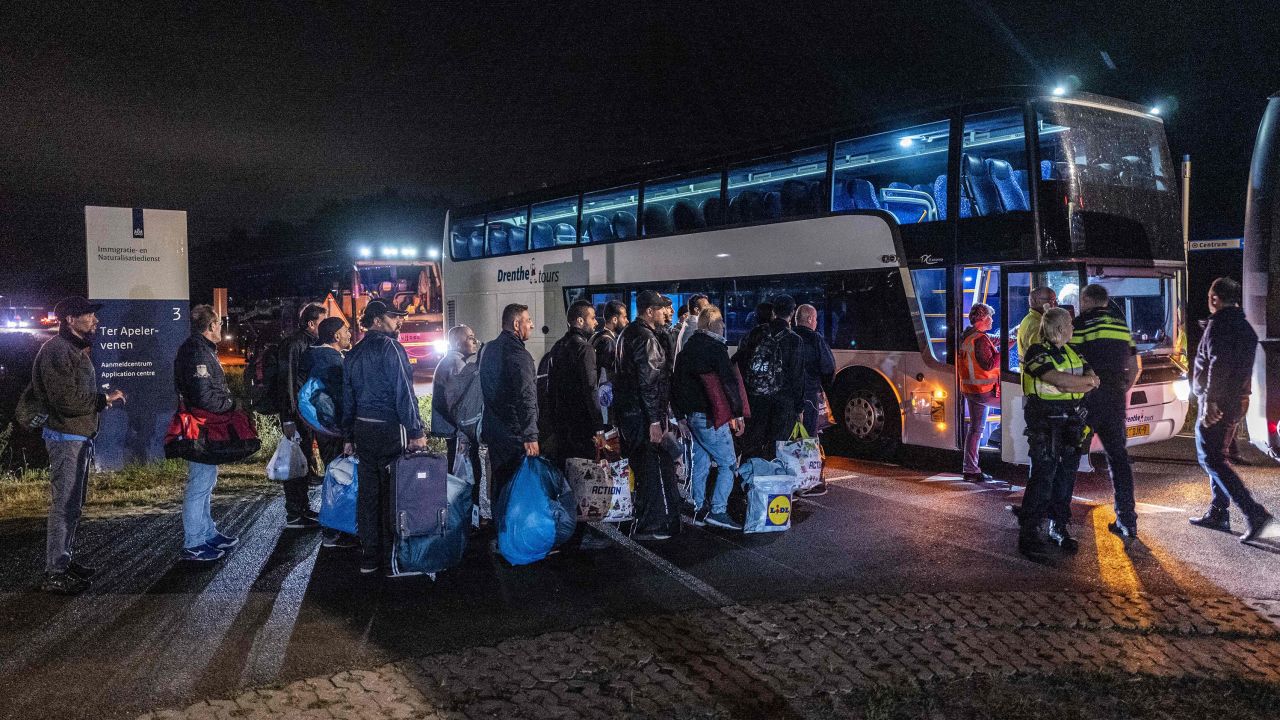Netherlands Extends Border Checks Despite Fewer Arrests And Asylum Claims

Table of Contents
Declining Arrest and Asylum Figures
Despite the extended border controls, the Netherlands has seen a notable decrease in both arrests related to illegal border crossings and asylum applications. This discrepancy forms the core of the ongoing debate surrounding the necessity of continued stringent border security measures.
Fewer Arrests
The number of arrests related to illegal border crossings has shown a significant decline. While precise figures fluctuate depending on the reporting period, initial reports suggest a decrease of approximately X% compared to the previous year (Source: [Insert Official Government Source Here]). This reduction reflects a decrease in various types of crime associated with illegal border crossings.
- Specific crime reduction: Reports indicate a decrease in smuggling activities, specifically related to [mention specific examples, e.g., human trafficking, drug smuggling].
- Improved inter-agency cooperation: Enhanced collaboration between Dutch law enforcement agencies and their counterparts in neighboring countries might have contributed to the improved border security.
- Data source: The official statistics are compiled and published by [Insert Official Government Source Here].
Lower Asylum Applications
Similarly, the Netherlands has witnessed a drop in asylum applications. Data from [Insert Source, e.g., UNHCR, IND (Immigratie- en Naturalisatiedienst)] indicates a Y% decrease in applications compared to the previous year (Source: [Insert Source Here]). Several factors might contribute to this decline:
- Improved situations in countries of origin: Positive developments in certain regions might have reduced the number of individuals seeking asylum in the Netherlands.
- Stricter asylum policies in neighboring countries: Changes in asylum policies in other EU countries could potentially influence the choice of destination for asylum seekers.
- Increased processing efficiency: Improvements in the asylum application processing system may have contributed to a faster resolution of cases, potentially reducing the backlog.
Reasons for Extended Border Checks
Despite the encouraging downward trend in arrests and asylum applications, the Dutch government has opted to extend border checks. This decision stems from a complex interplay of security concerns and broader European Union policies.
Maintaining Security Concerns
The government maintains that extending border checks is crucial for upholding national security, even with reduced crime rates. Their justification centers on the persistent threat of:
- Organized crime: The government emphasizes the continued threat of organized crime networks exploiting vulnerable individuals and engaging in illegal activities across borders.
- Potential for future increases: Authorities express concerns about the potential for future surges in illegal immigration or asylum applications, necessitating proactive measures.
- Risk assessment and threat levels: The government's decision reflects a broader risk assessment and consideration of potential future threats, justifying the ongoing deployment of border security measures.
EU-wide Security Considerations
The Netherlands' decision is also influenced by wider EU security policies and the functioning of the Schengen Area.
- Schengen Area cooperation: Maintaining a coordinated approach to border control within the Schengen Area requires cooperation and alignment among member states.
- European migration policies: The impact of broader European migration policies and their influence on the Netherlands' national security considerations are crucial factors.
- Coordination with neighboring countries: Effective border control necessitates collaboration with neighboring countries to prevent circumvention of security measures.
Impact and Criticism of Extended Border Checks
The extension of border checks in the Netherlands carries potential economic and social consequences, leading to public debate and criticism.
Economic Impact
Prolonged border checks could negatively affect several sectors of the Dutch economy:
- Disruption to cross-border trade: Increased waiting times at border crossings can disrupt the efficient flow of goods, impacting trade relationships with neighboring countries.
- Tourism impact: Lengthy border procedures may deter tourists, potentially reducing revenue for the tourism sector.
- Economic studies: Further economic studies are necessary to accurately assess the long-term economic impact of these extended border controls.
Public Opinion and Political Debate
The extension of border checks has generated considerable public and political debate:
- Diverse perspectives: Different political parties hold varying opinions on the necessity and effectiveness of the extended measures.
- Public protests: There have been [mention examples of public protests or discussions if any].
- Media coverage: Media coverage plays a significant role in shaping public perception and influencing the political discourse surrounding this issue.
Conclusion
The Netherlands' decision to extend border checks despite declining arrest and asylum figures highlights a complex interplay between perceived security threats, EU-wide policies, and economic considerations. The discrepancy between the reduction in crime statistics and the continued need for stringent border controls remains a central point of contention. The economic impact of prolonged checks and the broader implications for the Schengen Area warrant further scrutiny. The ongoing debate underscores the need for a balanced approach to border security that addresses both security concerns and the potential negative consequences for the economy and public life.
Call to Action: Stay updated on the latest developments in Netherlands border control and engage in the ongoing discussion about the effectiveness of current border security measures within the Schengen Area. Follow the debate and learn more about the implications of extended border checks in the Netherlands.

Featured Posts
-
 Broadcoms V Mware Acquisition At And T Exposes A 1 050 Cost Increase
May 12, 2025
Broadcoms V Mware Acquisition At And T Exposes A 1 050 Cost Increase
May 12, 2025 -
 Judges Hot Start Vs Braves Cold Open A Statistical Comparison
May 12, 2025
Judges Hot Start Vs Braves Cold Open A Statistical Comparison
May 12, 2025 -
 Anunoby Lidera A Knicks A Victoria Sobre 76ers Novena Derrota Para Philadelphia
May 12, 2025
Anunoby Lidera A Knicks A Victoria Sobre 76ers Novena Derrota Para Philadelphia
May 12, 2025 -
 Stellantis Ceo Decision Imminent Focus On Us Leadership
May 12, 2025
Stellantis Ceo Decision Imminent Focus On Us Leadership
May 12, 2025 -
 Resistance Mounts Car Dealerships Push Back Against Ev Mandates
May 12, 2025
Resistance Mounts Car Dealerships Push Back Against Ev Mandates
May 12, 2025
